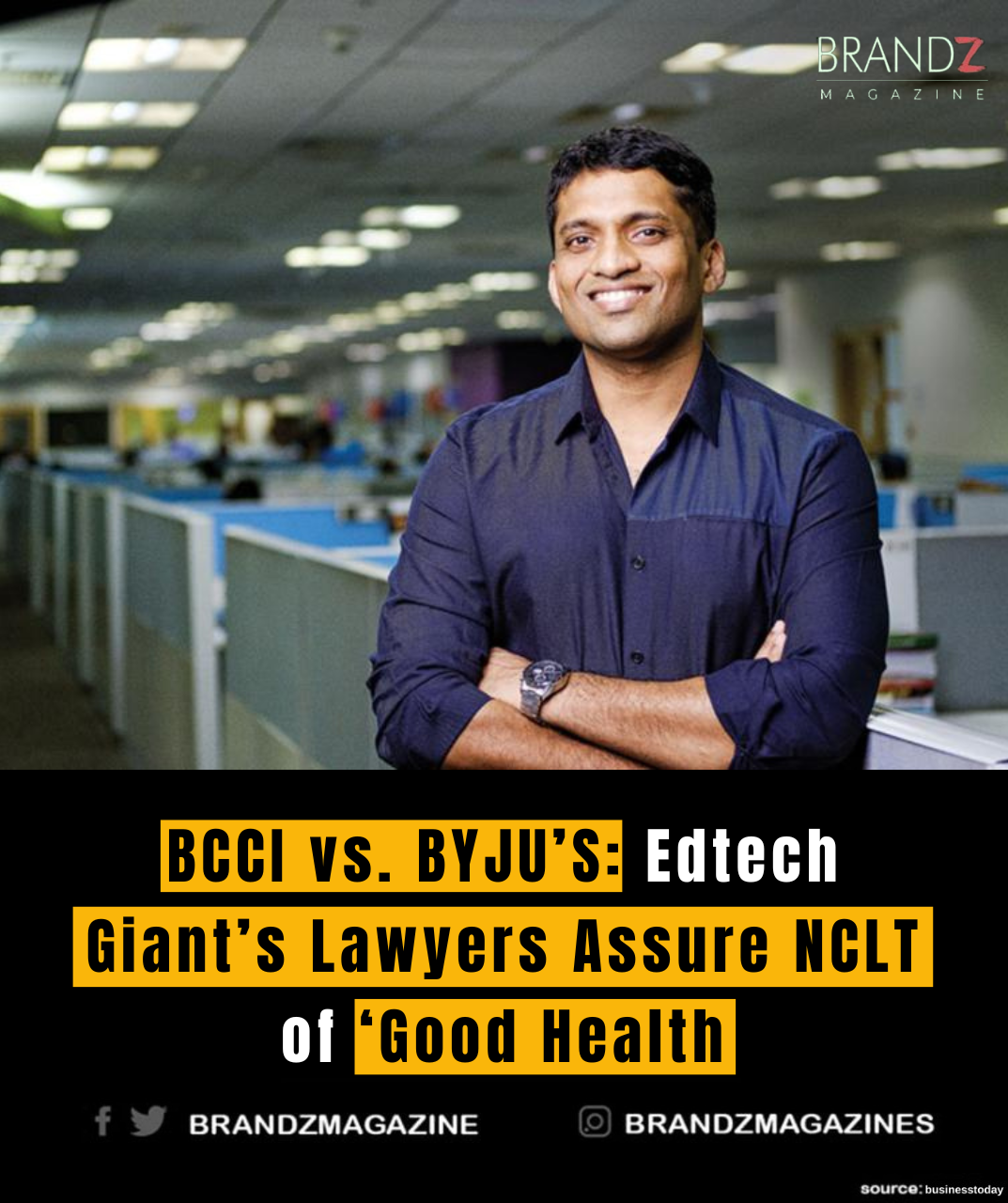
In a recent legal development, BYJU’S, the prominent edtech giant, has found itself in a legal dispute with the Board of Control for Cricket in India (BCCI). The National Company Law Tribunal (NCLT) is at the center of this legal tussle, as BYJU’S lawyers assured the tribunal of the edtech company’s ‘good health’ amid the ongoing controversy. This clash between a cricketing powerhouse and a leading edtech player has garnered significant attention, raising questions about the intersection of sports and education in the corporate landscape.
Background of the Dispute:
The conflict stems from a contractual agreement between BYJU’S and BCCI, where the edtech company acquired the title sponsorship rights for the Indian cricket team. However, reports suggest that BCCI has raised concerns about the financial health of BYJU’S, leading to legal proceedings before the NCLT.
Assurances of ‘Good Health’:
In response to the apprehensions raised by BCCI, lawyers representing BYJU’S appeared before the NCLT to assure the tribunal of the edtech giant’s financial well-being. The legal team provided insights into BYJU’S robust financial standing, emphasizing its stability and commitment to fulfilling contractual obligations.
BYJU’S, known for its significant presence in the education technology sector, has been a key player in promoting online learning, especially during the pandemic. The legal assurances seek to dispel any concerns regarding the company’s ability to fulfill its contractual commitments with BCCI.
The Intersection of Sports and Edtech:
The clash between BYJU’S and BCCI brings attention to the evolving dynamics between sports and education in the corporate realm. The increasing involvement of edtech companies in sports sponsorships reflects a strategic alignment between two seemingly disparate sectors. The use of sports as a platform for brand visibility and engagement has become a common strategy for companies, including those in the education technology space.
Legal Implications and Corporate Image:
The legal dispute has wider implications not only for the involved parties but also for the broader corporate landscape. As two influential entities engage in legal proceedings, the outcome could set a precedent for how contractual disputes between sports organizations and corporate sponsors are resolved.
Additionally, the dispute shines a light on the importance of due diligence in such agreements, emphasizing the need for comprehensive assessments of the financial health and stability of corporate partners. For BYJU’S, the case also has implications for its corporate image, given its standing as a leading edtech player with a significant presence in the Indian education sector.
The Role of NCLT:
As the legal battle unfolds before the NCLT, the tribunal is tasked with evaluating the evidence presented by both parties and making an informed decision. The NCLT’s role is crucial in determining the validity of BCCI’s concerns and BYJU’S assurances, providing a legal framework for resolving the dispute.
Conclusion:
The BCCI vs. BYJU’S legal dispute underscores the intricate relationship between sports and corporate entities, particularly in the context of edtech companies leveraging sports sponsorships for brand visibility. As the legal proceedings progress, the case will likely contribute to shaping the norms and expectations surrounding such partnerships. The outcome of this dispute has ramifications not only for the involved parties but also for the broader corporate ecosystem, emphasizing the importance of transparency, due diligence, and contractual clarity in sports sponsorships and corporate collaborations.

